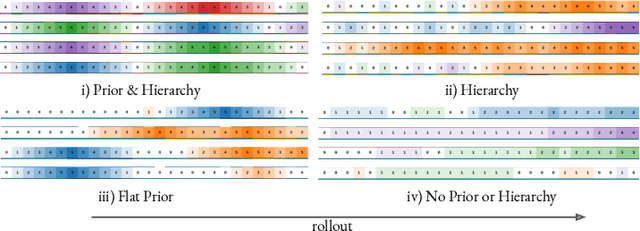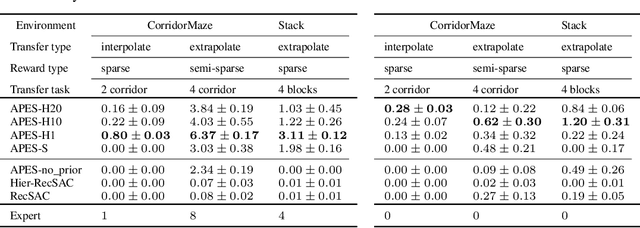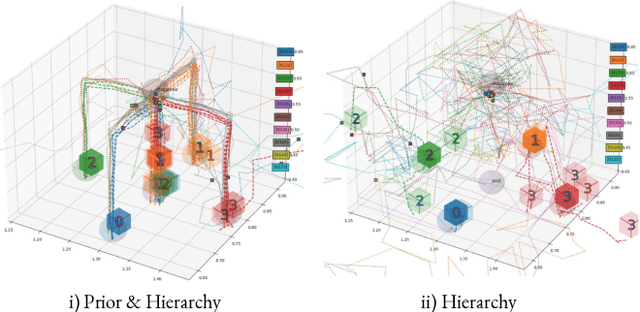Priors, Hierarchy, and Information Asymmetry for Skill Transfer in Reinforcement Learning
Paper and Code
Jan 20, 2022



The ability to discover behaviours from past experience and transfer them to new tasks is a hallmark of intelligent agents acting sample-efficiently in the real world. Equipping embodied reinforcement learners with the same ability may be crucial for their successful deployment in robotics. While hierarchical and KL-regularized RL individually hold promise here, arguably a hybrid approach could combine their respective benefits. Key to these fields is the use of information asymmetry to bias which skills are learnt. While asymmetric choice has a large influence on transferability, prior works have explored a narrow range of asymmetries, primarily motivated by intuition. In this paper, we theoretically and empirically show the crucial trade-off, controlled by information asymmetry, between the expressivity and transferability of skills across sequential tasks. Given this insight, we provide a principled approach towards choosing asymmetry and apply our approach to a complex, robotic block stacking domain, unsolvable by baselines, demonstrating the effectiveness of hierarchical KL-regularized RL, coupled with correct asymmetric choice, for sample-efficient transfer learning.
 Add to Chrome
Add to Chrome Add to Firefox
Add to Firefox Add to Edge
Add to Edge